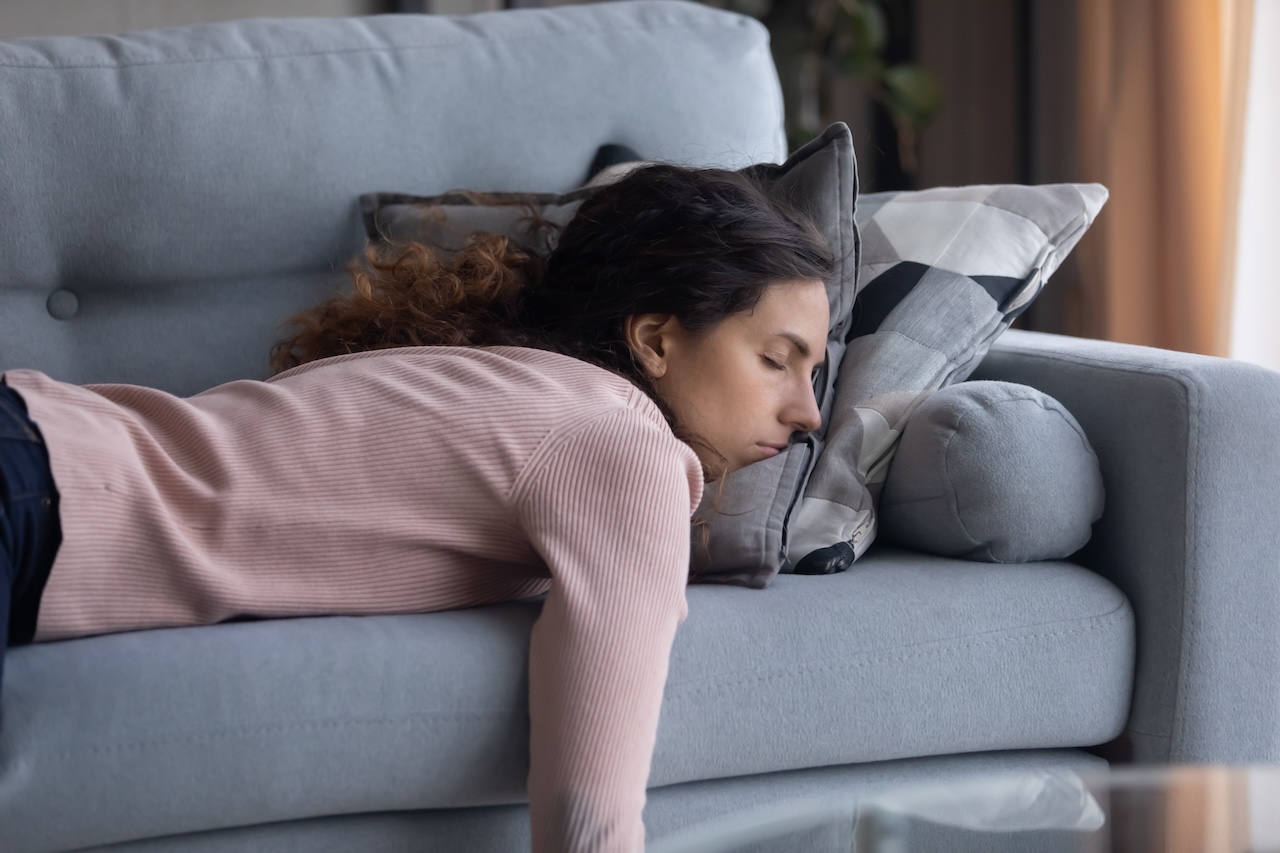Main Street News

Exhausted young Caucasian woman lying on comfortable sofa in living room sleeping after hard-working day, tired millennial female fall asleep on couch at home, take nap or daydream, fatigue concept
Are Naps Good For You?
We’re all guilty of an occasional afternoon nap. You lay down on the couch, maybe only intending to close your eyes for a few minutes, and then boom, you wake up an hour or two later with no idea what time it is, how you slept so long, or what you were supposed to be doing during the time that you were asleep.
This brings us to the age old question: are naps actually good for you? We did some research to find out.
Do women need more sleep than men?
Let’s start off by addressing the differences in sleep health between men and women. Every person has their own individual needs when it comes to sleep – many sources report that the average adult needs between seven and nine hours of sleep per night – but research suggests that women tend to sleep longer than men.
There are a number of reasons why women need more sleep than men. The National Center for Biotechnology Information reports that women are more likely to have insomnia than men and are twice as likely to be diagnosed with anxiety and depression.
Changes in hormones are also a contributing factor for differing sleep needs, as the sleep-wake cycle is run by hormones. Menstruation, pregnancy, and menopause all cause changes in women’s hormones, which can affect fatigue levels and cause sleep disruption.
The Sleep Foundation reports that while women need more sleep than men and they also tend to sleep slightly longer than men by just over 11 minutes. A study from the National Library of Medicine, Biotech Information found that women are more likely to nap during the day, “which suggests their longer total sleep time may be misleading, since some of it takes place during the day. Naps add to a person’s total sleep time, but they can also make nighttime sleep less restful.”
This can also suggest that women are more tired, on average, than men.
What are the pros and cons of napping?
The Mayo Clinic reported that the benefits of napping for healthy adults include increased relaxation, reduced fatigue, increased alertness, improved mood, and improved performance, including quicker reaction time and better memory.
On the flip side, napping can also cause sleep inertia, which is the groggy and disoriented feeling you experience after waking up from a nap, and nighttime sleep problems. If you already experience insomnia or poor sleep quality, napping can worsen these problems and interfere with your regularly scheduled sleep.
How do I nap effectively?
How do you know when the best time is to take a nap? The Mayo Clinic suggests that you consider a nap if you’re experiencing new fatigue or unexpected sleepiness, if you’re about to experience sleep loss due to other circumstances like a long work shift, or if you want to make planned naps a part of your regular routine.
To get the most benefits out of a nap, it’s best to keep them short and sweet. Research suggests that optimal nap time is between 10 to 20 minutes, and the longer you nap, the more likely you are to wake up groggy and find it hard to function.
The best time to take a nap is in the early afternoon. “Napping after 3pm can interfere with nighttime sleep. Individual factors, such as your need for sleep, your sleeping schedule, your age and your medication use, also can play a role in determining the ebay time of day to nap.”
Additionally, napping in a dark, quiet environment is best for falling asleep quicker and getting the most out of your afternoon rest.
Final thoughts
So based on all of this research, I guess the general consensus is that, so long as you’re not abusing it, a midday nap can actually work wonders for your well-being. So if you’ll excuse me, I’m going to grab my office blankie and go take a little snooze. Happy napping!
*Disclaimer: All medical claims made in this article are information provided by the subject. The information is general in nature and not specifically meant for any particular individual. You should always seek out medical assistance from a medical professional based on your individual needs and circumstances.

